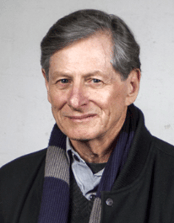On a recent assignment in Asia I shot still images, produced video clips and recorded sound bites from the location to be used as a soundscape for a sequence of images.
Technology has rapidly changed the way we think and work as photojournalists. To continue working in this genre many photojournalists have diversified, added extra skills and become multimedia experts. They have learnt to shoot videos, acquired interview skills and been taught how to write articles. All of this helps the photographer to have more control over projects and offer extra value to a media organisation. After all, when you pitch for an assignment you need to offer something that sets you apart from your competitors.
A number of photojournalists and documentary photographers are struggling to earn a decent living and yet they are still not willing to embrace the changes happening around them.
Change in photography is nothing new it has always occurred. Change is constant. No point in saying I didn’t sign on for this version of the world… it’s the version of the world we’ve got… embrace it!
 Dr Michael Coyne has worked as a photojournalist for over 35 years, covering significant events in places as diverse as China, Papua New Guinea, Cambodia, Indonesia, the Middle East and Africa. His work has been featured in magazines such as: Time, Life, Newsweek, and National Geographic. Michael's extensive work has been featured in a number of solo exhibitions around the world. He has had many successful books published about his work. Three documentaries films and a stage play have been produced about his life and work.
Dr Michael Coyne has worked as a photojournalist for over 35 years, covering significant events in places as diverse as China, Papua New Guinea, Cambodia, Indonesia, the Middle East and Africa. His work has been featured in magazines such as: Time, Life, Newsweek, and National Geographic. Michael's extensive work has been featured in a number of solo exhibitions around the world. He has had many successful books published about his work. Three documentaries films and a stage play have been produced about his life and work.
At PSC we teach you the skills to keep you current with new technologies in image making. Learn more about our Bachelor Degree in Photography program and start your journey to becoming a photojournalist.
Applications are now open for our Bachelor Of Photography Degree, July intake.
